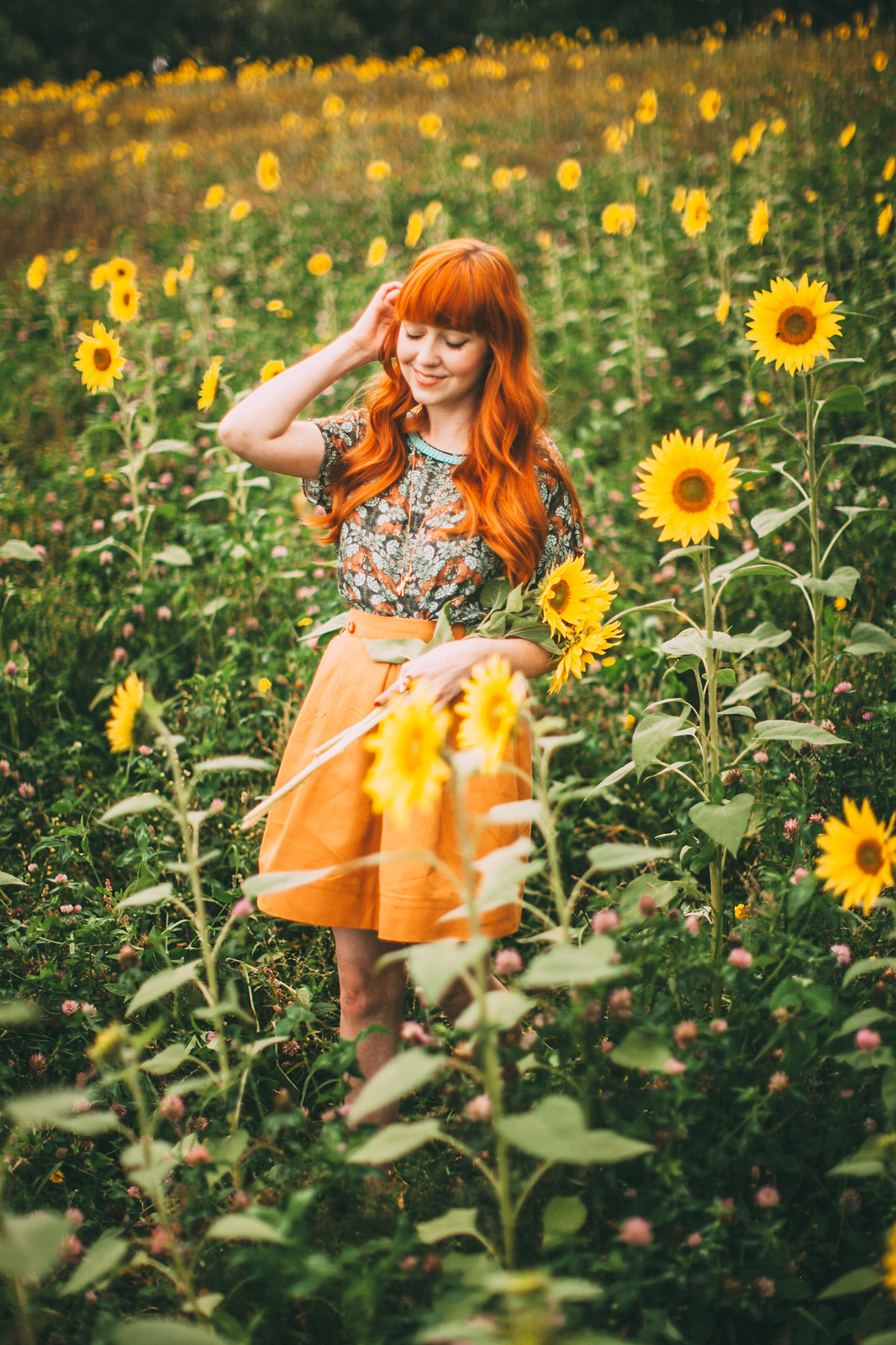
With fashion being one of the biggest contributors to pollution, it’s more important than ever to focus on ethical fashion. I hesitate to write posts about ethical fashion because I’m far from perfect, but I always want to be making an effort to improve. With that in mind I have been trying to focus on shopping more ethical brands when I can and trying to support those businesses that are trying to do good. Before I launch into my faves, let’s take a moment to discuss what ethical fashion is, because that phrase is actually a bit of a blanket term for several different things. Ethical fashion can mean fair trade; where fair wages and prices are paid throughout the production process. Most of the clothes we buy on high street are so cheap because someone along the line is being paid very poorly; fair-trade means everyone involved in the process of making the clothes is receiving a livable wage. However fair-trade doesn’t guarantee the clothes are good for the environment. So ethical fashion rather than being one thing, is an umbrella term for all those things: fair-trade, sustainable production, and the environment. This means it’s partly up to each of us to decide which aspect we want to prioritize when we shop—and after we shop how we treasure our clothes. The brands I’m sharing today are ones that I personally have experience with and fall under one or more of the categories of ethical fashion; it's by no means an exhaustive list but one I hope to continue to focus and grow.
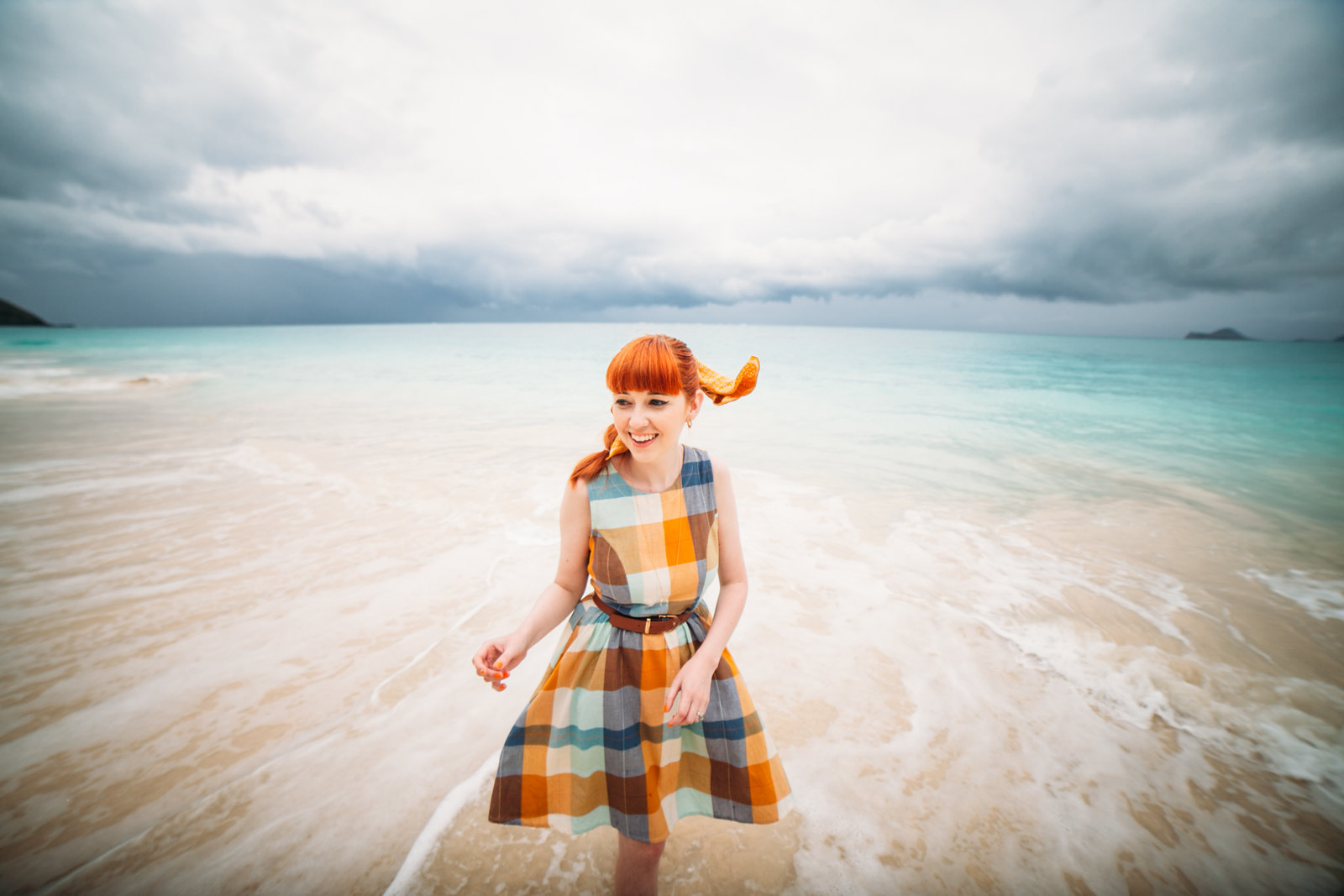 Mata Traders: One of the first ethical fashion brands I ever came across is Mata Traders. It’s a clothing line where the emphasis on fair trade is front and center; more than just paying livable wages to their artisans they help support cooperatives that provide paid maternity leave, retirement pensions, and educational courses from literacy to computer training. If you want to feel like your clothes purchase is making a real difference in someone’s life, then this is a brand to really check out. Additionally they celebrate traditional artisan crafts to keep traditional methods and crafts alive. The shop also carries a wide variety of products from clothes to jewelry and accessories.
Mata Traders: One of the first ethical fashion brands I ever came across is Mata Traders. It’s a clothing line where the emphasis on fair trade is front and center; more than just paying livable wages to their artisans they help support cooperatives that provide paid maternity leave, retirement pensions, and educational courses from literacy to computer training. If you want to feel like your clothes purchase is making a real difference in someone’s life, then this is a brand to really check out. Additionally they celebrate traditional artisan crafts to keep traditional methods and crafts alive. The shop also carries a wide variety of products from clothes to jewelry and accessories.
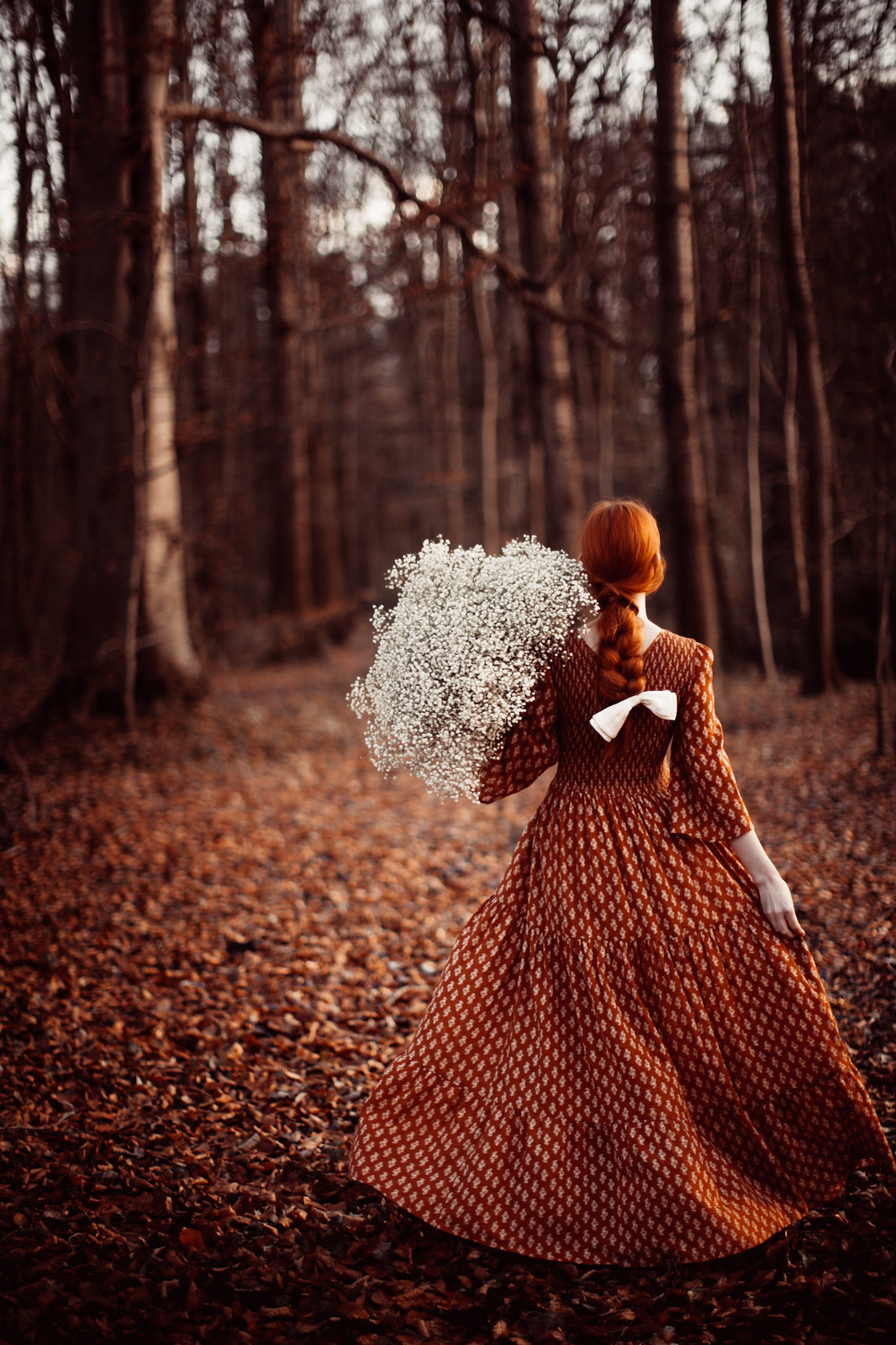 Christy Dawn: I have two dresses from Christy Dawn and while they can be a bit of an investment there is also a sense of “specialness” with this brand. This brand is locally made in Los Angeles; the seamstresses receive premium rates for their work and the clothes are made using headstock fabrics. Deadstock fabrics are leftover fabrics from other fashion houses; this means their environmental footprint is minimal and they’re actually helping reduce waste in the fashion industry. Since the dresses are made with headstock fabric this also means once they run out of a fabric there’s nothing left, so each piece they make has a “limited edition” feel similar to vintage. Once it’s gone that particular dress won’t be made again.
Christy Dawn: I have two dresses from Christy Dawn and while they can be a bit of an investment there is also a sense of “specialness” with this brand. This brand is locally made in Los Angeles; the seamstresses receive premium rates for their work and the clothes are made using headstock fabrics. Deadstock fabrics are leftover fabrics from other fashion houses; this means their environmental footprint is minimal and they’re actually helping reduce waste in the fashion industry. Since the dresses are made with headstock fabric this also means once they run out of a fabric there’s nothing left, so each piece they make has a “limited edition” feel similar to vintage. Once it’s gone that particular dress won’t be made again.
Girae Rigira: Another favorite store of mine that uses deadstock fabrics, although this one focuses on vintage finds is Girae Rigira from Italy; using vintage fabrics makes the shop an environmentally friendly one. This shop is a small one-woman business with everything designed and made by Germana. For handmade clothes it’s also one of the more affordable ethical shops out there. Her clothes have a retro flair and she has a real knack for finding vintage deadstock fabrics and prints that still translate to today’s styles. From striped blouses to corduroy skirts and suspender trousers, it’s a shop you could build a whole workable wardrobe from. The first picture in this post is featuring a Girae blouse in a fox print & her mustard skirt with removable suspenders.
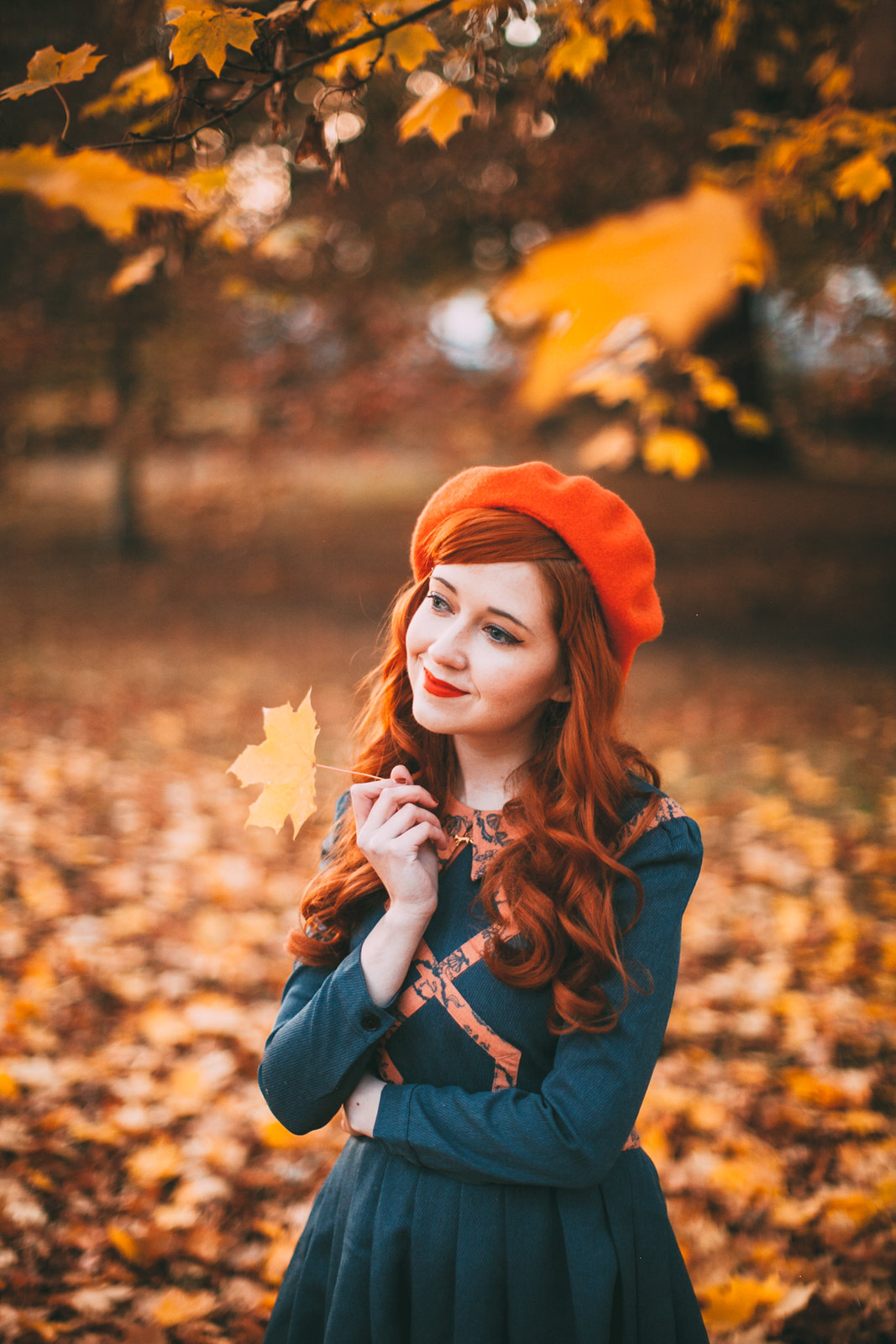 Family Affairs: A lot of people get a bit shell-shocked by the prices when they compare high street stores to independent sellers, but one detail they might be missing out on is that their independent seller could be a fair-trade company and that combined with smaller, safer production will always mean higher prices. One of my favorite independent designers who also focuses on small production using ethical labor is Family Affairs. It’s a brand I’ve shopped, worn, and supported for years and still love today. She has amazing sales as well which is a great way to still buy something that is being produced in safe conditions by people earning a fair wage and not break your bank.
Family Affairs: A lot of people get a bit shell-shocked by the prices when they compare high street stores to independent sellers, but one detail they might be missing out on is that their independent seller could be a fair-trade company and that combined with smaller, safer production will always mean higher prices. One of my favorite independent designers who also focuses on small production using ethical labor is Family Affairs. It’s a brand I’ve shopped, worn, and supported for years and still love today. She has amazing sales as well which is a great way to still buy something that is being produced in safe conditions by people earning a fair wage and not break your bank.
People Tree: This brand does a really good job of not only being fair trade, but also sustainable and reducing their environment impact. People Tree clothes are dyed using low impact dyes and natural materials avoiding plastic and toxic substances. Of all the brands I’ve mentioned in this post, I’d say People Tree is one of the most wearable and classic with simple striped dresses and breezy tunics. Ethical fashion definitely it’s all retro inspired (just my personal leanings) or out of budget and People Tree is a great example of that.
Mademoiselle YeYe: You nearly have the read the label of the clothes from Mademoiselle YeYe to learn it’s an ethical brand because the message isn’t front and center of their website like other brands. But this is a vintage inspired brand out of Germany that is made ethically—their clothes are fair trade and made with eco-certified and without any animal products making them vegan as well. If you’re into 60s style dresses and retro striped knits, this is a brand you need to check out.
Doen: One brand I'm really obsessed with at the moment for pure aesthetic reasons is Doen. If you covet dreamy, romantic dresses, unique knits, and velvet flats then this brand will be right up your alley. Additionally, the brand is mindful towards production with an emphasis on fair wages, safe working conditions, and promoting women-run businesses whenever possible. They also design a collection of children's clothes each year where 100% of the proceeds go to a charity that promotes literacy and gender equality.
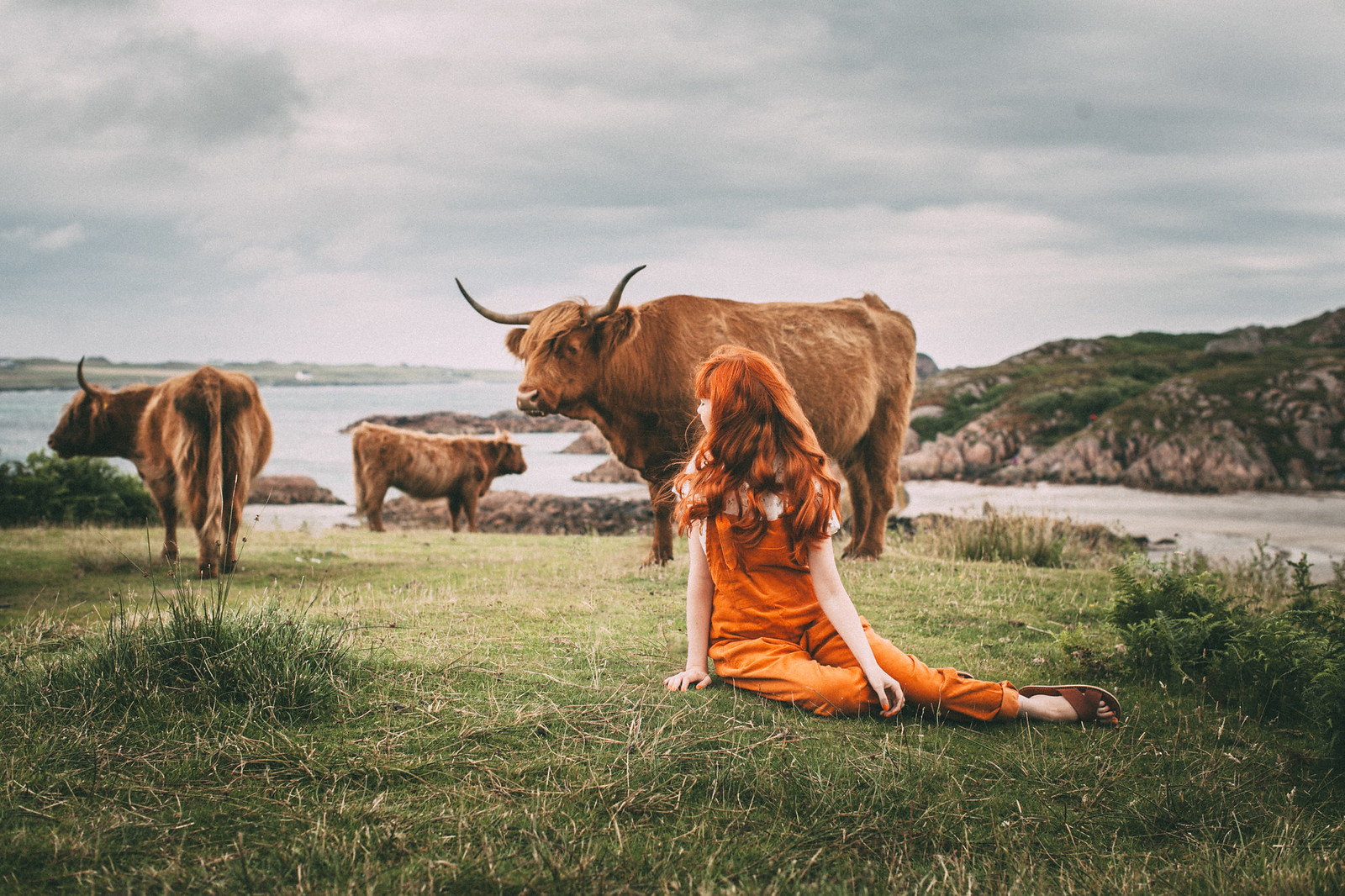 Lucy&Yak: A newer and great brand to the ethical fashion scene is Lucy&Yak. Their most popular styles are relaxed dungarees and boiler suits in every color of the rainbow but their products also extend to outerwear, dresses, and tops. In addition to making sure their dungarees are produced in safe conditions, they also focus on paying livable wages and organic fabrics dyed with low impact dyes. It's a very thoughtful brand that does everything it can from biodegradable shipping bags to not having tags on clothes to reduce as much waste as possible.
Lucy&Yak: A newer and great brand to the ethical fashion scene is Lucy&Yak. Their most popular styles are relaxed dungarees and boiler suits in every color of the rainbow but their products also extend to outerwear, dresses, and tops. In addition to making sure their dungarees are produced in safe conditions, they also focus on paying livable wages and organic fabrics dyed with low impact dyes. It's a very thoughtful brand that does everything it can from biodegradable shipping bags to not having tags on clothes to reduce as much waste as possible.
A few other ideas when you're trying to build a more ethical wardrobe and way of shopping--consider buying vintage and don't forget that so much waste comes from treating clothes as disposable. One of the most sustainable ways to live is to try to buy less, but also to really appreciate and use what we buy and own. That means re-wearing and even repairing clothes when they start to show wear rather than getting rid of them--buttons are easy to replace, pieces can be upcycled, etc. I'm not an expert, but I do feel a few small steps in the right direction is a good place to start.
 Mata Traders: One of the first ethical fashion brands I ever came across is Mata Traders. It’s a clothing line where the emphasis on fair trade is front and center; more than just paying livable wages to their artisans they help support cooperatives that provide paid maternity leave, retirement pensions, and educational courses from literacy to computer training. If you want to feel like your clothes purchase is making a real difference in someone’s life, then this is a brand to really check out. Additionally they celebrate traditional artisan crafts to keep traditional methods and crafts alive. The shop also carries a wide variety of products from clothes to jewelry and accessories.
Mata Traders: One of the first ethical fashion brands I ever came across is Mata Traders. It’s a clothing line where the emphasis on fair trade is front and center; more than just paying livable wages to their artisans they help support cooperatives that provide paid maternity leave, retirement pensions, and educational courses from literacy to computer training. If you want to feel like your clothes purchase is making a real difference in someone’s life, then this is a brand to really check out. Additionally they celebrate traditional artisan crafts to keep traditional methods and crafts alive. The shop also carries a wide variety of products from clothes to jewelry and accessories. Christy Dawn: I have two dresses from Christy Dawn and while they can be a bit of an investment there is also a sense of “specialness” with this brand. This brand is locally made in Los Angeles; the seamstresses receive premium rates for their work and the clothes are made using headstock fabrics. Deadstock fabrics are leftover fabrics from other fashion houses; this means their environmental footprint is minimal and they’re actually helping reduce waste in the fashion industry. Since the dresses are made with headstock fabric this also means once they run out of a fabric there’s nothing left, so each piece they make has a “limited edition” feel similar to vintage. Once it’s gone that particular dress won’t be made again.
Christy Dawn: I have two dresses from Christy Dawn and while they can be a bit of an investment there is also a sense of “specialness” with this brand. This brand is locally made in Los Angeles; the seamstresses receive premium rates for their work and the clothes are made using headstock fabrics. Deadstock fabrics are leftover fabrics from other fashion houses; this means their environmental footprint is minimal and they’re actually helping reduce waste in the fashion industry. Since the dresses are made with headstock fabric this also means once they run out of a fabric there’s nothing left, so each piece they make has a “limited edition” feel similar to vintage. Once it’s gone that particular dress won’t be made again. Family Affairs: A lot of people get a bit shell-shocked by the prices when they compare high street stores to independent sellers, but one detail they might be missing out on is that their independent seller could be a fair-trade company and that combined with smaller, safer production will always mean higher prices. One of my favorite independent designers who also focuses on small production using ethical labor is Family Affairs. It’s a brand I’ve shopped, worn, and supported for years and still love today. She has amazing sales as well which is a great way to still buy something that is being produced in safe conditions by people earning a fair wage and not break your bank.
Family Affairs: A lot of people get a bit shell-shocked by the prices when they compare high street stores to independent sellers, but one detail they might be missing out on is that their independent seller could be a fair-trade company and that combined with smaller, safer production will always mean higher prices. One of my favorite independent designers who also focuses on small production using ethical labor is Family Affairs. It’s a brand I’ve shopped, worn, and supported for years and still love today. She has amazing sales as well which is a great way to still buy something that is being produced in safe conditions by people earning a fair wage and not break your bank.Doen: One brand I'm really obsessed with at the moment for pure aesthetic reasons is Doen. If you covet dreamy, romantic dresses, unique knits, and velvet flats then this brand will be right up your alley. Additionally, the brand is mindful towards production with an emphasis on fair wages, safe working conditions, and promoting women-run businesses whenever possible. They also design a collection of children's clothes each year where 100% of the proceeds go to a charity that promotes literacy and gender equality.
 Lucy&Yak: A newer and great brand to the ethical fashion scene is Lucy&Yak. Their most popular styles are relaxed dungarees and boiler suits in every color of the rainbow but their products also extend to outerwear, dresses, and tops. In addition to making sure their dungarees are produced in safe conditions, they also focus on paying livable wages and organic fabrics dyed with low impact dyes. It's a very thoughtful brand that does everything it can from biodegradable shipping bags to not having tags on clothes to reduce as much waste as possible.
Lucy&Yak: A newer and great brand to the ethical fashion scene is Lucy&Yak. Their most popular styles are relaxed dungarees and boiler suits in every color of the rainbow but their products also extend to outerwear, dresses, and tops. In addition to making sure their dungarees are produced in safe conditions, they also focus on paying livable wages and organic fabrics dyed with low impact dyes. It's a very thoughtful brand that does everything it can from biodegradable shipping bags to not having tags on clothes to reduce as much waste as possible.A few other ideas when you're trying to build a more ethical wardrobe and way of shopping--consider buying vintage and don't forget that so much waste comes from treating clothes as disposable. One of the most sustainable ways to live is to try to buy less, but also to really appreciate and use what we buy and own. That means re-wearing and even repairing clothes when they start to show wear rather than getting rid of them--buttons are easy to replace, pieces can be upcycled, etc. I'm not an expert, but I do feel a few small steps in the right direction is a good place to start.

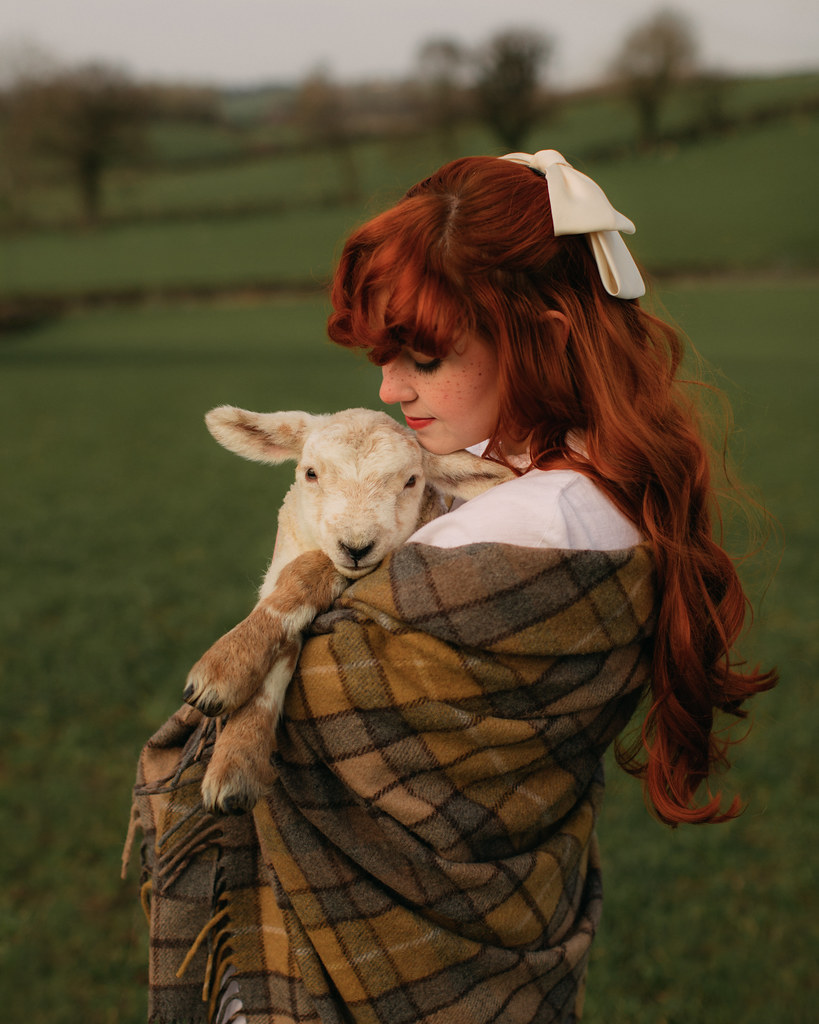


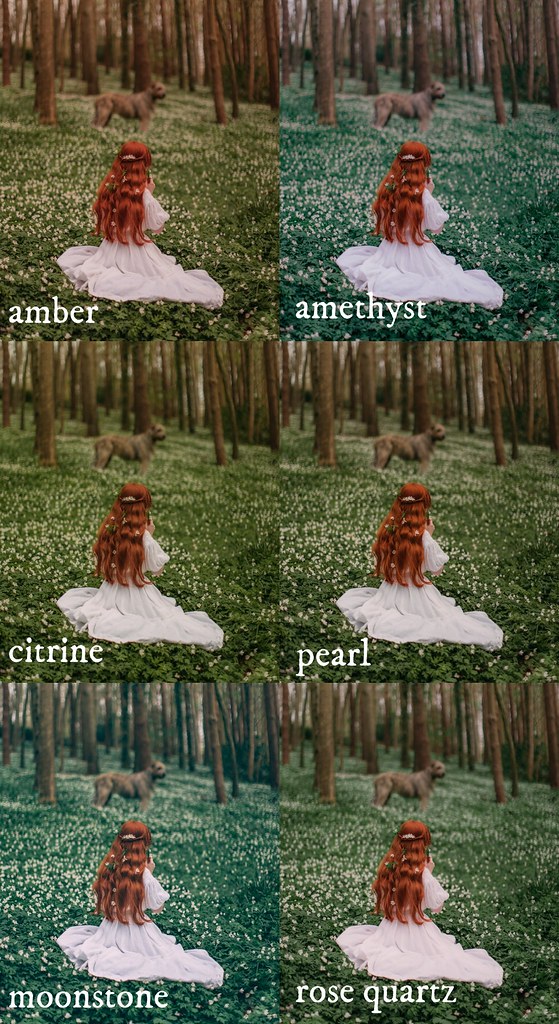
CONVERSATION